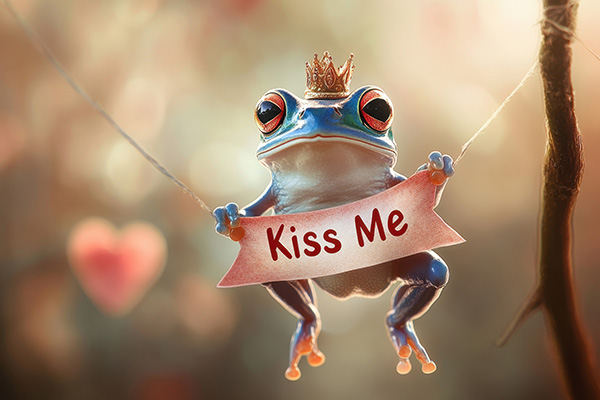toxic feelings
Take Out The Toxic Trash With A Self-Love Meditation
 I’ve been teaching meditation for over 30 years now, and it is something that has been widely misunderstood. It has also been hijacked by people with nefarious, materialistic agendas.
I’ve been teaching meditation for over 30 years now, and it is something that has been widely misunderstood. It has also been hijacked by people with nefarious, materialistic agendas.
Meditation is not about emptying the mind or having no thoughts. Rather, it is about removing and replacing negative thoughts, repetitive patterns, abusive programming from childhood, and conditioning imposed by sadistic or wounded individuals.
Meditation is about inviting God, Spirit, Source, the Divine back into the heart, soul, and mind.
When we are children, everything begins with love. Children are eternal optimists, even when they have been traumatized.
But almost every child encounters at least one parent, relative, teacher, classmate, or authority figure who is abusive. These individuals attempt to rid themselves of their own overflowing toxicity by dumping it onto others: verbally, emotionally, or physically. Their words become programming, much like a computer virus.
Meditation is designed to replace that negative programming. Instead of hearing “you are worthless” looping in your mind, meditation allows you to consciously replace that tape with “I am loved.”
Think about the hurtful words that were spoken or screamed at you as a child. Then, during meditation, repeat the opposite.
Embracing Growth Challenges In Your Relationship
 At some point in a romantic relationship, we all face challenges that test our connection with our partner or spouse. People disagree, make mistakes, and experience conflict. It’s human nature.
At some point in a romantic relationship, we all face challenges that test our connection with our partner or spouse. People disagree, make mistakes, and experience conflict. It’s human nature.
However, it is important to realize that most problems in a developing relationship are often not inherently negative or catastrophic. Instead, they present valuable opportunities for personal growth, healing, and self-discovery.
If you believe that your happiness in a relationship depends on finding the perfect partner, it’s time for a new perspective. The key to a happy relationship is to remove personal barriers one at a time. By doing so, you can fully immerse yourself in love and become a magnet for attracting the right partner into your life.
Consider the following five common issues that many new couples face and how you can learn from them to foster a stronger, more fulfilling connection with your significant other.
The Happiness Myth
Some people go into a new relationship expecting their partner to bring them the complete state of happiness, joy, and fulfillment they have always sought. But others cannot make us happy, joyful, or fulfilled because achieving this is always an inside job. It starts with us.
Ask Spirit For Patience This Holiday Season
The holidays are supposed to be a time of joy, togetherness, and celebration. But for some of us, it can also be a time of tension, distress, and intense emotions.
Instead of being a time of gratitude, love, and connection, for some of us the holidays mark the resurfacing of old family conflicts, unresolved tensions, and the weight of others’ overwhelming expectations or criticisms.
These challenges often lead to frustration, sadness, anger, or feelings of being overwhelmed, turning what should be a time of love and belonging into one that underscores where our relationships with loved ones are most strained.
At this point, asking spirit or your higher power to help you cultivate the virtue of patience becomes a powerful way to stay grounded and centered.
Patience isn’t just about enduring difficult moments; it’s about being aware of those moments and choosing to respond with grace and dignity rather than impulsively. When tensions rise — perhaps during a family dinner where conversations may become heated or awkward — it is easy to fall back on old patterns and habitual responses. Asking for spiritual support and protection in these moments, however, can provide a higher perspective and an empowered response.
Whether it’s through a silent prayer, a few deep breaths, whispering your favorite mantra, or simply making a conscious call for help in your mind, spiritual presence can help you pause, step back, ground and center, and approach the situation calmly and with more compassion — for yourself and others.
Be Your Own Light In Times Of Darkness
 We’ve been facing dark days and challenging times across the world in recent years, no matter where we live. But the future is much brighter than it may seem, and that light of hope begins with you.
We’ve been facing dark days and challenging times across the world in recent years, no matter where we live. But the future is much brighter than it may seem, and that light of hope begins with you.
With social media and constant news feed updates, mostly centered around negativity, disaster, conflict, or tragedy, many of us feel overwhelmed these days. These are especially not easy times for the spiritually conscious person and the highly sensitive.
Our generation is being bombarded with a stream of distressing information and content, much of which includes falsehoods and fearmongering. Children today are exposed to more in grade school than some of us were after we graduated and entered the workforce. That’s not always a good thing, but it also means they’re growing up faster, and with the right guidance, they can grow up wiser.
When people talk about “the good old days,” they’re usually thinking about how much simpler life seemed in the past. I remember my grandparents saying such things long before there was the internet, smartphones, or AI. So, I guess every generation has its own reasons for nostalgia, and this sentiment is nothing new in the digital age.
That said, some of us today still grew up without television or even radio, and lived through the full evolution of the current digital age. Many elders still feel disconnected from how rapidly things have changed. But there’s beauty in that too. Each generation carries wisdom, and now, more than ever, we need to blend that wisdom with the tools of today to create a better path forward for all of us.
From Resentment To Radiance: The Power Of Forgiveness
 As a Kundalini yoga instructor, I’ve come to understand forgiveness as much more than just an act of kindness or compassion. It is a sacred healing practice — an essential release and transmutation of toxic energy held within the subtle body.
As a Kundalini yoga instructor, I’ve come to understand forgiveness as much more than just an act of kindness or compassion. It is a sacred healing practice — an essential release and transmutation of toxic energy held within the subtle body.
My work as a Reiki healer and psychic reader has deepened my understanding of this concept. I’ve witnessed firsthand how unresolved emotional pain, bitterness and resentment can create stagnation in our energetic pathways, dimming our vitality and obstructing our intuitive abilities.
In both healing sessions and psychic readings, I’ve seen forgiveness spark remarkable shifts in people’s physical, mental, emotional and spiritual well-being.
In the Kundalini Yoga tradition, forgiveness is not merely a moral ideal. It is a profound energetic cleanse. When we cling to resentment, anger, or betrayal, we create dense energy imprints, or emotional residue, in our aura and chakras, especially around the heart center (Anahata). These blockages disrupt pranic flow, dull intuitive perception, and limit our capacity to experience divine love.
My yoga teacher, Yogi Bhajan, often reminded us that the fastest route to healing and happiness is to forgive completely and limitlessly. He taught that true forgiveness requires releasing the subconscious “recordings” and emotional patterns etched into both hemispheres of the brain — patterns that replay pain and perpetuate karmic loops. “Forgive, release, learn, love, and excel,” he would say. Continue reading
Feeling Stuck? Maybe It’s Time To Clear The Clutter!
 Have you ever felt like your life is stagnant…or even moving backwards. Despite your best intentions and efforts, something unseen keeps slowing your down or pulling you off track?
Have you ever felt like your life is stagnant…or even moving backwards. Despite your best intentions and efforts, something unseen keeps slowing your down or pulling you off track?
Recently, I found myself in exactly that place. My energy was low. My motivation had all but evaporated. My health was taking a hit.
And even though I was doing all the “right” things-helping others, staying aligned with my purpose, and working toward my highest good-everything felt dense, heavy, blocked, stuck.
In a quiet moment of surrender, I finally sat down and asked my guides, “What am I missing here?
The answer I received was very simple, yet profoundly eye-opening:
“It’s time to clear the clutter…so you can move forward.”
At first I was stunned. What? Really? But after some careful reflection, the wisdom of this guidance from spirit sunk in.
The idea of clutter is one we often associate with messy rooms, crowded surfaces, or overflowing closets, but its reach goes much deeper.
Clutter can accumulate in our minds, emotions, energy fields, and souls. It’s not always visible, but it weighs us down. It can block intuition, dull our spark, and create invisible walls that keep us from stepping into our divine potential.
The Divine Path Back To Unconditional Love
 Recently, I was meditating on a deeply personal situation — one that stirred up waves of anger and resentment, even bordering on hatred and bitterness. Then I received an insight from spirit that stopped me in my tracks. It was one of those profound moments when time stands still and sacred truth illuminates your heart.
Recently, I was meditating on a deeply personal situation — one that stirred up waves of anger and resentment, even bordering on hatred and bitterness. Then I received an insight from spirit that stopped me in my tracks. It was one of those profound moments when time stands still and sacred truth illuminates your heart.
“Never forget the Golden Rule,” spirit said. “Do unto others as you would have them do unto you. Do not do to others what you do not want done to you. Do unto others as you would have them do unto you.”
Suddenly I realized that the deeper truth of holding unconditional love in your heart. It’s a universal spiritual principle because it works both ways! You would never, ever want the same hatred or anger that you direct at others, to be directed at you.
Now let me be honest. My anger this time wasn’t just outward to others. It also turned inward. It was a growing dark, toxic presence in my heart and mind.
Life has been hard lately. Too many people I know have died far too young. Watching my beloved partner in a so-called “medical facility” that should not be allowed to take care of anyone, especially our elders. Almost losing him. Being emotionally and financially drained by someone I trusted. The exhausting noise of political chaos.
It has been one thing after another, piling up until I reached a boiling point. I began to ask the big, painful question: Why? Why all this suffering? Why now? Why me? And I wasn’t just angry at the world — I was angry at myself. Angry at Source, Spirit, God. Angry at the seeming cruelty of it all.
